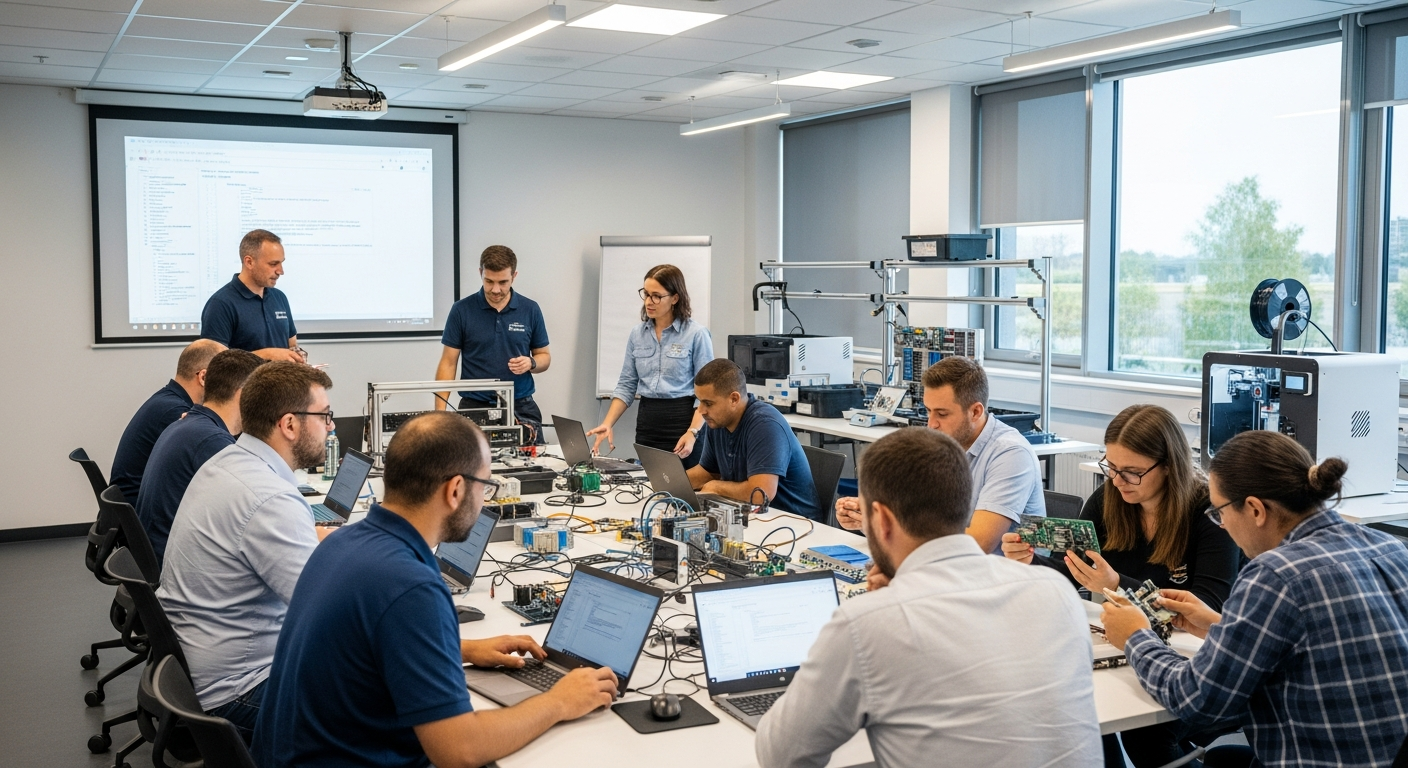Quantum-Inspired Optimization for Industrial Efficiency
Quantum computing's revolutionary potential is reshaping industrial landscapes. While full-scale quantum computers remain on the horizon, quantum-inspired algorithms are already transforming efficiency in manufacturing, logistics, and supply chain management. This cutting-edge approach marries classical computing with quantum principles, offering unprecedented solutions to complex optimization problems that have long challenged traditional methods.

The Quantum Advantage in Industrial Problem-Solving
Quantum-inspired algorithms offer a significant leap forward in addressing complex optimization problems that plague industrial sectors. Traditional computing methods often struggle with the exponential growth in complexity as variables increase. Quantum-inspired techniques, however, can navigate these multidimensional problem spaces more efficiently, leading to faster and more effective solutions.
These algorithms excel in scenarios involving multiple interdependent variables, such as route optimization for logistics companies or production scheduling in manufacturing plants. By exploring numerous potential solutions simultaneously, quantum-inspired methods can identify optimal or near-optimal outcomes far more rapidly than conventional approaches.
Practical Applications in Manufacturing
In the manufacturing sector, quantum-inspired optimization is revolutionizing production planning and resource allocation. These advanced algorithms can analyze vast arrays of data points, including machine capabilities, material availability, energy costs, and demand forecasts, to determine the most efficient production schedules.
For instance, a large automotive manufacturer implemented quantum-inspired techniques to optimize its assembly line processes. The result was a 15% increase in throughput and a significant reduction in idle time. This approach allowed the company to balance workloads more effectively across different stations, minimizing bottlenecks and maximizing overall efficiency.
Enhancing Supply Chain Resilience
Supply chain management presents another fertile ground for quantum-inspired optimization. The complexity of global supply networks, with their myriad suppliers, transportation routes, and inventory locations, creates a perfect storm of variables that traditional computing struggles to navigate efficiently.
Quantum-inspired algorithms can rapidly analyze countless supply chain configurations to identify the most resilient and cost-effective structures. This capability proves invaluable in scenarios such as supplier diversification, risk mitigation, and rapid response to disruptions. A major electronics retailer leveraged these techniques to redesign its supply chain, resulting in a 20% reduction in inventory costs and improved on-time delivery rates.
Energy Grid Optimization and Sustainability
The energy sector stands to benefit significantly from quantum-inspired optimization, particularly in the management of smart grids and renewable energy integration. These algorithms can process the complex interplay of energy generation, storage, and consumption patterns to optimize grid performance and stability.
A European utility company employed quantum-inspired methods to balance load distribution across its network, incorporating variable inputs from wind and solar sources. This approach led to a 10% improvement in overall grid efficiency and a notable reduction in energy waste. As the world transitions towards more sustainable energy solutions, such optimization techniques will play a crucial role in maximizing the potential of renewable resources.
Challenges and Future Prospects
While the potential of quantum-inspired optimization is immense, its widespread adoption faces several hurdles. One primary challenge lies in translating complex industrial problems into formats suitable for these algorithms. This process often requires specialized expertise and a deep understanding of both quantum principles and specific industry dynamics.
Moreover, the effectiveness of quantum-inspired methods can vary depending on the problem structure. Some optimization challenges may not see significant improvements over classical methods, necessitating careful evaluation of when and where to apply these techniques.
Looking ahead, the field of quantum-inspired optimization is poised for rapid growth. As researchers refine these algorithms and develop more user-friendly interfaces, we can expect to see broader adoption across various industries. The convergence of quantum-inspired techniques with other emerging technologies, such as machine learning and edge computing, promises to unlock even more powerful optimization capabilities in the future.
Quantum-Inspired Optimization: Key Considerations for Implementation
-
Conduct a thorough assessment of your optimization needs to identify areas where quantum-inspired methods can offer significant improvements
-
Invest in training and upskilling your workforce to understand and leverage quantum-inspired algorithms effectively
-
Start with pilot projects to gauge the impact and scalability of these techniques within your specific operational context
-
Collaborate with quantum computing experts or specialized firms to ensure proper implementation and maximize benefits
-
Stay informed about advancements in quantum-inspired algorithms to continually refine and improve your optimization strategies
As industries continue to grapple with increasingly complex operational challenges, quantum-inspired optimization emerges as a powerful tool in the pursuit of efficiency and innovation. By harnessing the principles of quantum computing within classical systems, businesses can unlock new levels of performance and competitiveness. While the journey towards full-scale quantum computing continues, quantum-inspired methods offer a tangible and immediate path to enhanced industrial optimization, paving the way for a more efficient and sustainable future.






